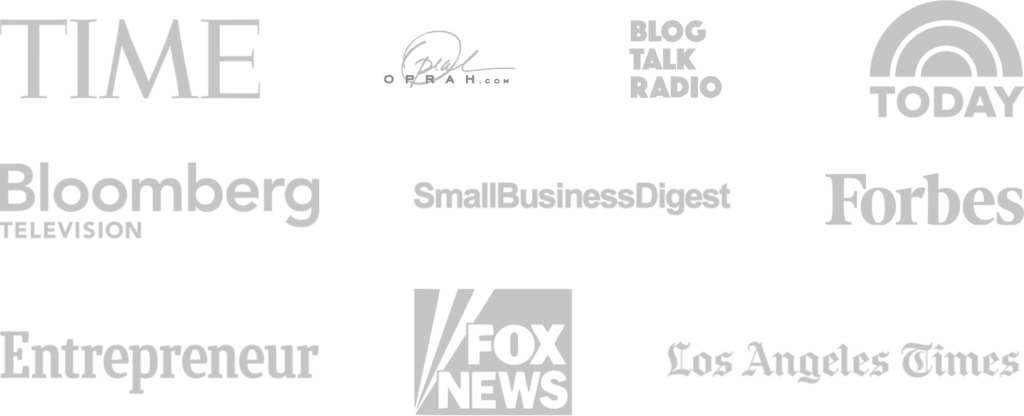The most innovative path to living a life of maximum satisfaction.
KEY POINTS:
- The All to Common Obstacle: Our quest for fulfillment is often hindered by Emotional Poverty.
- The Inaccurate Pursuit of Happiness: Our pursuit of happiness is contributing to the “never-enough-syndrome”.
- Imperative ROI of Living Wealthy: Practicing Living Wealthy yields substantial returns in three crucial areas.
Want to achieve deep fulfillment in life? This state beyond happiness will unlock a high ROI for what matters most to you.
I believe we all have a deep inner quest. Most often it is traversed through an existential “quest”ion. Ask just about anyone what makes them fulfilled, why they exist, who they are and what their purpose is in the grand scheme of life, and you’ll touch on this quest.

Our way of being in this life quest – where we place our attention, the perspective we hold, how we behave – determines its quality and outcome.
This is essential because, in my experience, it is what shapes our character and confidence and ultimately is key to overcoming obstacles that block our ability to solve problems, get to clear answers, and achieve our life quest.
The good news? Your way of being in this quest is in your control… and it determines your life satisfaction.
The All to Common Obstacle…
Our life can feel out of our control when we experience things like constant stress, overwhelm, and loneliness. Overtime, they become limitations hindering our life quest. This becomes a state of Emotional Poverty.
Dr. Ruby Payne originally defined the term “emotional poverty” as a state where the brain is not regulated, the inner self is undeveloped and there is a lack of secure bonding and attachment with others.
Based on our work at LivWeal Institute, we have evolved this definition to:
Emotional Poverty is a conditional state that develops from a pattern of consistent avoidance or struggle with emotional processing over prolonged periods of time. This leads to emotional needs not being met, causing a deterioration of key human systems.
This can be worsened by external environmental conditions that regularly reinforce feelings of inferiority or disconnection to what fulfills us.
The Inaccurate Pursuit of Happiness…
We often mistake happiness as life satisfaction along our quest.
 Yet, research paints happiness as a fleeting, momentary experience, like shifting cloud patterns, it’s an ever-changing and temporary emotion. Neuroscience tells us our brains adapt to “happy stuff”, reducing its impact over time.
Yet, research paints happiness as a fleeting, momentary experience, like shifting cloud patterns, it’s an ever-changing and temporary emotion. Neuroscience tells us our brains adapt to “happy stuff”, reducing its impact over time.
As a result, while moments of happiness are part of a healthy quest, they don’t equate to the stability and longevity of life satisfaction.
Professionally, I’ve seen the detrimental impact of chasing these ephemeral moments of happiness. The relentless pursuit often leads to what I refer to as “never enough syndrome,” a harmful pattern where “more” is never enough. This form of emotional poverty, rooted in a scarcity mindset, can spiral into an addictive loop.
Research shows that dopamine, the chemical that sparks happiness in anticipation of pleasure from something we want, fuels our motivation. Pursuing what we enjoy is not inherently a problem, the real question here is: what exactly are we striving for?
Are we endlessly chasing fleeting happiness, falling into the trap of the “never-enough-syndrome”, or are we seeking a deeper, more sustainable satisfaction? Ironically, this constant pursuit for happiness often takes us further from it, trapping us in a cycle of endless searching without finding it.
A common expression of this chase is through material wealth, and research shows that prioritizing material gains often decreases life satisfaction. Here’s the thing, regardless of financial status and/or what they have, unfulfilled people tend to want more.
 I believe our voracious drive for more has led to Greed-Geared Capitalism, where overconsumption and a drive to outdo others along with excessive focus on personal gain and material wealth creates ongoing dissatisfaction. I’ve observed that greed often arises from emotional poverty, an attempt to fill an inner void and longing for happiness with possessions, further fueling the “never enough syndrome.”
I believe our voracious drive for more has led to Greed-Geared Capitalism, where overconsumption and a drive to outdo others along with excessive focus on personal gain and material wealth creates ongoing dissatisfaction. I’ve observed that greed often arises from emotional poverty, an attempt to fill an inner void and longing for happiness with possessions, further fueling the “never enough syndrome.”
The reality is, no amount of money or thingamabobs can ever truly replace life satisfaction.
So, are we destined to be greedy and compromise our life satisfaction? No, certainly not!
That’s why how we approach our life quest really does matter. I offer that we are better served by placing our attention on the pursuit of what brings us deeper meaning and lasting fulfillment, rather than chasing the transient nature of happiness.
I refer to this state of being, as Living Wealthy.
I define Living Wealthy as an intentional daily devotional practice of making life-nourishing choices which manifest our optimal state of being and therefore our desires.
Imperative ROI of Living Wealthy…
Embracing the practice of Living Wealthy maximizes life satisfaction and fulfillment, in part, by helping you overcome emotional poverty and its many expressions. How? It clarifies where to place your attention, cultivates a balanced perspective, and directs you towards beneficial behaviors which yields a substantial return on investment across your lifetime.
Three crucial areas that benefit the clients I support include: personal transformation, visionary leadership, and economic innovation.
1. Personal: At its core, Living Wealthy is about a personal awakening – a profound shift in self-awareness that reshapes your behaviors and empowers you. Ten+ minutes a day of mindfulness practice, for example, could lead to reduced anxiety and an increase in your reported level of daily satisfaction and productivity.
2. Leadership: In leadership, Living Wealthy becomes a touchstone for your compassion and focus. It moves you beyond rigid hierarchies to build ecosystems where every person feels valued and heard. For example, weekly check-ins with your team members to listen to their needs may increase morale and significantly reduce turnover rates.
3. Economics: Economically, Living Wealthy advocates a shift from profit-centric views to a model where personal and community well-being are a top priority. This approach, based on the concept of Pareto Improvement, aims for an efficient economy structured to benefit its citizens without creating disadvantages for others. This leads to a reimagining of value measures for sustainable and communal economic progress.

Remember, you define what it means to live fully, love deeply, and lead with an open heart. In your pursuit of Living Wealthy, you have the power to control and shape your quest and to build a life of satisfaction.



